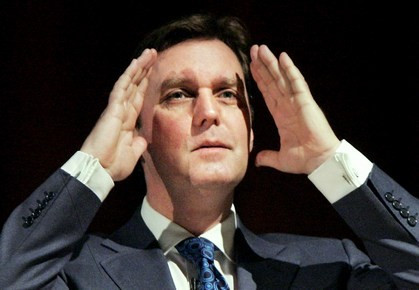'Tsar' Alan Milburn Thinks the Unthinkable on Poverty and is Heading for the Long Grass

Newly-elected governments love to create "Tsars" to carry out in-depth reviews of big policy issues in order to come up with equally big, radical solutions.
The problem is that is very often exactly what they do and, by the time they have completed their work, the political cycle has moved on.
So it was always likely that, when David Cameron asked former Labour minister Alan Milburn to become the government's Tsar examining social mobility and child poverty, he would come up with some challenging conclusions.
Sure enough, in his first report to the government, Milburn has said that being in work no longer means individuals won't fall into poverty and that children from middle and low-income homes are likely to be worse off than their parents because of falling living standards.
He said the government target of ending child poverty by 2020 would very likely be missed by a "considerable margin", leaving as many as two million children in poverty.
And he has called for means testing of pensioners' benefits such as winter fuel payments and free TV licences, and an increase in minimum wage levels to channel funds to those most at risk.
He said some five million people, mainly women, were earning less than the living wage of about £7.45 an hour outside of London and that it was time for the better off, including some pensioners, to share part of the burden of helping them.
"These are the people frankly who do all the right things, they go out to work, they stand on their own two feet, they look after their families - they're the strivers not the shirkers - and yet they're all too often the forgotten people of Britain and I think they desperately need a new deal."
It was not possible for the government, through benefits, to offer all the help needed so the cash had to come from other areas, such as taxing wealthier pensioners' benefits, he said.
And that is where his report started to run into resistance from ministers.
While Labour welcomed it because it played into their story of falling living standards and awidening wealth gap, both prime minister David Cameron and his deputy Nick Clegg dismissed the idea of means testing pensioners' benefits.
And the prime minister's spokesman said there would be an official response to the report "in due course". For seasoned Westminster watchers that is usually read to mean "don't hold your breath".
So it seems highly likely that Milburn's report will go the way of many such radical propositions - placed neatly on a shelf and left there to gather dust.
That would be a pity, whatever the rights and wrongs of his analysis, because it goes to the heart of much of the debate around living standards, welfare and poverty which remains at the centre of UK politics.
Even if ministers feel the political environment is not currently right for such radical thinking, it is surely counter productive to appoint Tsars, commission reports and suggest the plan is to "think the unthinkable" - as Tony Blair once did on welfare - and then, when the unthinkable has been produced, kick it into the long grass.
© Copyright IBTimes 2024. All rights reserved.























